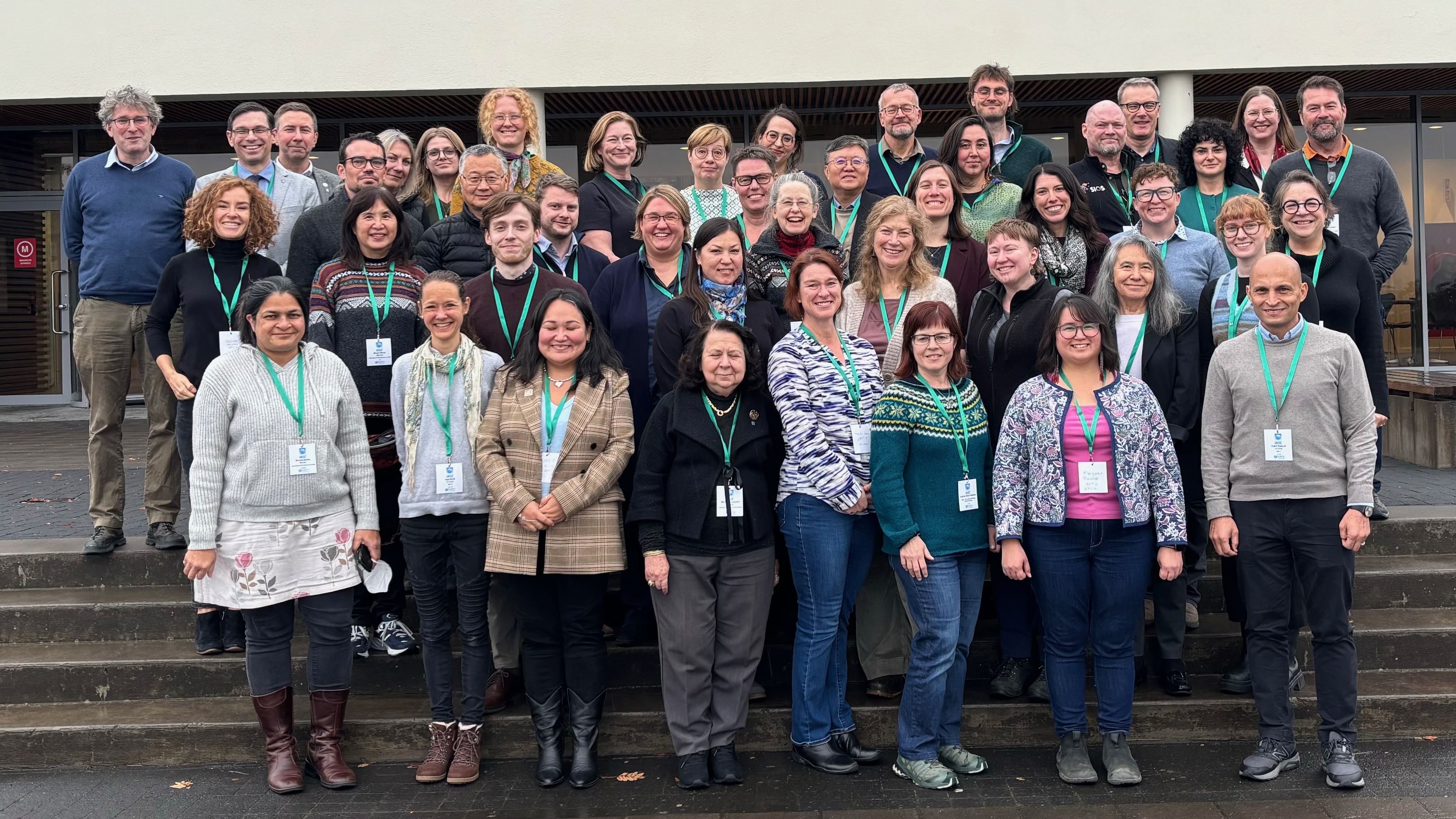The Fourth International Conference on Arctic Research Planning (ICARP IV) Process Planning Retreat 2024 took place from 21 - 24 October 2024, in Akureyri, Iceland. Organized by the International Arctic Science Committee (IASC) in collaboration with the University of Akureyri, the retreat convened over 50 participants from 13 countries. Attendees included members of the ICARP IV International Steering Committee, the chairs of the seven ICARP IV Research Priority Teams (RPTs) and the Arctic Data Committee, members of the ICAPR IV Indigenous Peoples´ Coordination Group, representatives from Rannís The Icelandic Centre for Research - and the University of Akureyri, along with other local Icelandic partners and invited guests.
 The Fourth International Conference on Arctic Research Planning (ICARP IV) Process Planning Retreat 2024 took place from 21 - 24 October 2024, in Akureyri, Iceland. Organized by the International Arctic Science Committee (IASC) in collaboration with the University of Akureyri, the retreat convened over 50 participants from 13 countries. Attendees included members of the ICARP IV International Steering Committee, the chairs of the seven ICARP IV Research Priority Teams (RPTs) and the Arctic Data Committee, members of the ICAPR IV Indigenous Peoples´ Coordination Group, representatives from Rannís The Icelandic Centre for Research - and the University of Akureyri, along with other local Icelandic partners and invited guests.
The Fourth International Conference on Arctic Research Planning (ICARP IV) Process Planning Retreat 2024 took place from 21 - 24 October 2024, in Akureyri, Iceland. Organized by the International Arctic Science Committee (IASC) in collaboration with the University of Akureyri, the retreat convened over 50 participants from 13 countries. Attendees included members of the ICARP IV International Steering Committee, the chairs of the seven ICARP IV Research Priority Teams (RPTs) and the Arctic Data Committee, members of the ICAPR IV Indigenous Peoples´ Coordination Group, representatives from Rannís The Icelandic Centre for Research - and the University of Akureyri, along with other local Icelandic partners and invited guests.
The retreat offered a unique and invaluable platform for face-to-face discussions, fostering cross-disciplinary dialogues aimed at preventing duplication of effort and aligning research outcomes across diverse priorities. Participants focused on assessing the ICARP IV process thus far, refining research priorities, and shaping discussions for the ICARP IV Summit at the Arctic Science Summit Week (ASSW) in March 2025. Additionally, the retreat explored how these initiatives will contribute to the groundwork for the Fifth International Polar Year (IPY) in 2032–33.
During the first day, each Research Priority Team (RPT) presented their progress and contributions, revealing several key issues for advancing Arctic research. Participants underscored the need for long-term, stable funding to sustain progress, paired with well-coordinated implementation strategies that respect cultural contexts. Effective communication of research outcomes to diverse audiences was deemed vital, alongside the recognition of Indigenous expertise and sustainability practices. Calls were made to address structural inequalities in research, move away from colonized frameworks, and promote self-determination. The effectiveness of collaborative and consultative approaches was highlighted. Representing the voices and concerns of Indigenous Peoples remains a top priority, underscoring the importance of Indigenous Knowledge and the leadership of Indigenous Knowledge holders as the Arctic research agenda advances. Ensuring meaningful participation from all stakeholders, including Indigenous Peoples, is critical to achieving both equitable and impactful outcomes. The heavy burden on Arctic communities as first responders, often with limited resources, was also highlighted. Regarding Arctic Data, participants acknowledged the wealth of existing resources and stressed the importance of robust rights safeguards that surpass conventional notions of data sovereignty.
Day two focused on cross-cutting discussions among the RPTs. Participants broke into smaller groups to explore common interests, gaps, and themes emerging across different areas of Arctic research. A joint session followed, where the participants discussed strategies to strengthen linkages and ensure effective communication moving forward. One proposal involved assigning designated liaisons from each RPT to each of the other teams to streamline coordination and minimize overlaps. Preparations for the ASSW 2025 and the ICARP IV Summit were also considered, with participants agreeing to online meetings before the Summit to maintain momentum. In addition, there was broad acknowledgment of the need to ensure consistent terminology, to address tensions around issues like data sharing and geoengineering, and to revisit and update previous ICARP priorities based on current realities.
On the third day, attention turned to maximizing the impact of the ICARP IV Summit, planning the final ICARP IV outcomes, and ensuring that the Summit effectively advances each RPT’s work. Participants discussed how to structure town halls, internal planning sessions, and other events to encourage input from diverse voices, including Indigenous Peoples and Early Career Researchers. Participants considered options to improve engagement, such as webinars, mentorship initiatives, and accessible online platforms. Throughout these conversations, there was a shared understanding that priorities remain open to input, and that final reports should present a limited number of realistic, actionable priorities. Participants also addressed how to track the influence of ICARP IV once it concludes, considering follow-up events, annual updates, and methods to gauge whether identified priorities inform future research, policy, and funding decisions as the Arctic moves toward IPY 2032–33.
More information on the ICARP IV Process: https://icarp.iasc.info/
Photo: IASC Secretariat, Group Picture of the ICARP IV Retreat attendees

